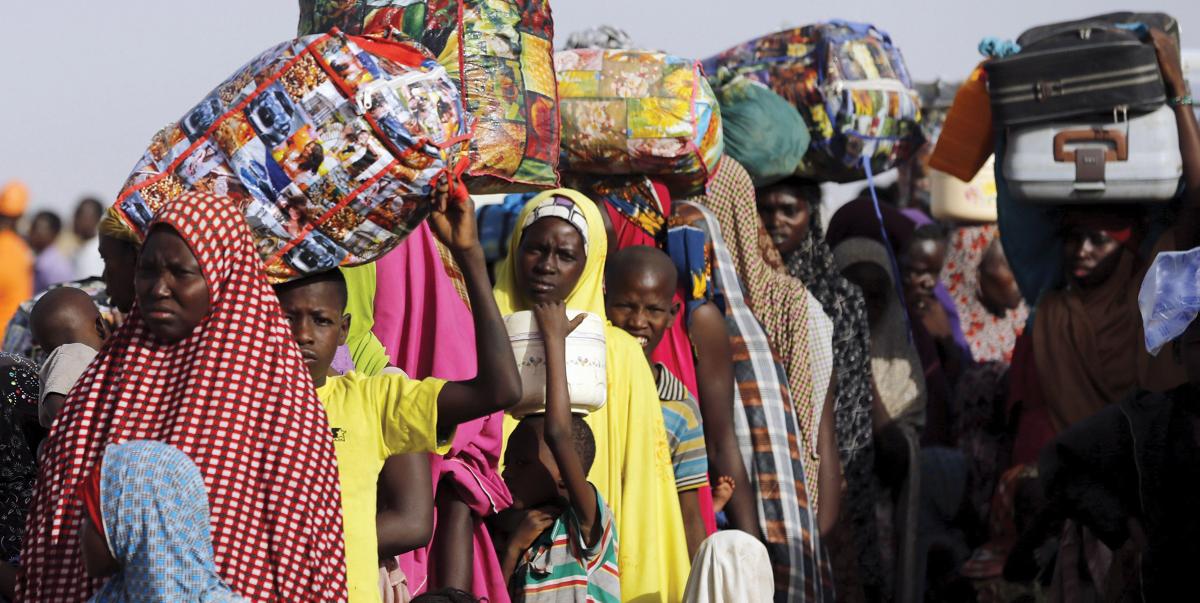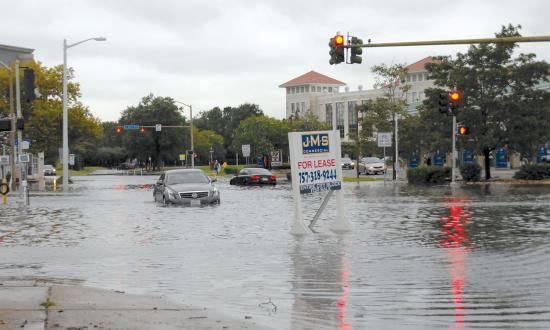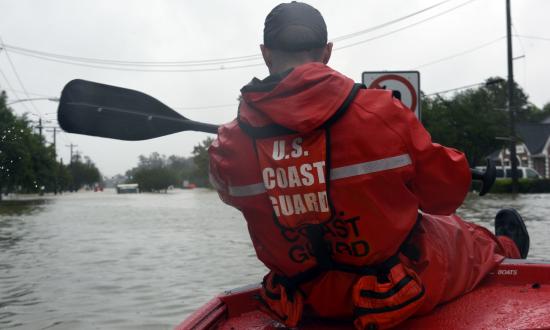Beyond the immediacy of rising sea levels and their impact on coastal areas, global climate change is a threat multiplier.1 In regions most directly affected by climatic shifts and extreme weather events, social instability can lead to diaspora events, as displaced persons seek refuge in the United States or partner nations, and create openings for nonstate armed group (NSAG) and transnational criminal organization (TCO) activity.
In addition, the Coast Guard’s lack of action to curb its own emissions augurs ill for retaining legitimacy as the nation’s premier maritime environmental regulatory enforcement arm. Without action, these realities will negatively affect both U.S. national security and the Coast Guard’s ability to lead the global maritime community toward sustainable practices.
An Opening for Cartels
NSAGs and TCOs are not borne of climate change directly, but there is an association. Climate events can contribute to frailty in a country or region.If a government is unable to respond adequately, its legitimacy is reduced in the eyes of the local populace, and NSAGs and TCOs are quick to fill the vacuum.2
A ready illustration is Guatemala, where the effects of climate change have exacerbated unrest and paved the way for TCOs. Guatemala is highly vulnerable to hurricanes and El Niño and La Niña events, which are directly linked to climate change.3 These events have contributed to years of unusually high or low rainfall, which in turn have negative implications for two of the nation’s cash crops: sugar cane and coffee.4 Economic instability and food insecurity are primary drivers of the rise of TCOs and narcotrafficking.5 Cartels control water sources to manipulate local populaces and to transport contraband. Instability in rural regions also has led to mass migrations to urban areas, which lack the infrastructure to accommodate the influx.6
It is not unimaginable that continued climate change events could lead to an exodus to the United States or partner nations. The Coast Guard’s involvement in such an event would assuredly degrade its ability to accomplish other missions that are growing in scope and responsibility across the globe.
Tackling the Challenge
As the service continues to modernize its fleet through new acquisitions such as the offshore patrol cutter and polar security cutter, it has an opportunity to ensure these platforms—from start to finish—are fully compliant with applicable air quality standards. This would be not only a powerful symbolic gesture, but also an opportunity to reduce the emissions of a sizable operational fleet.
Emission control areas (ECAs) are a key component of the Environmental Protection Agency and International Maritime Organization’s strategy to reduce air pollution from ships. The North American ECA extends 200 miles from the coasts of the United States and Canada, with the Coast Guard as a primary enforcement arm.7 But military vessels are exempt from its requirements. Continued reliance on exceptions for military vessels degrades public trust in the service and erodes its effectiveness as a regulatory body. On the international stage, by not anticipating and responding to these issues, the service loses the initiative of leadership. Unless the United States and its Coast Guard act, they cannot criticize peers and developing nations for failing to address climate change.
Climate change is not mentioned in the 2018–22 Coast Guard strategic plan. More surprising, the Arctic strategy, a document heavily influenced by the diminishing Arctic ice cap, has but one reference, on the 38th page.
It is past time for individual government agencies, and the Coast Guard in particular, to address climate change as both an existential threat and an issue that will fundamentally reshape how they do business. It is incumbent on those who support the service and the American people to think and plan in the terms this titanic problem requires.
1. Department of Defense, “Climate Adaptation Roadmap” (2014).
2. K. Nett and L. Rüttinger, Insurgency, Terrorism, and Organised Crime in a Warming Climate (Berlin: Climate Diplomacy, 2016); and R. A. Matthew, “Is Climate Change a National Security Issue?” Issues in Science and Technology 27, no. 3 (2011): 49–60.
3. Felicity Lawrence, “Climate Change Imperils Guatemala’s Food Security,” The Guardian, 31 May 2011.
4. World Bank, Vulnerability, Risk Reduction, and Adaptation to Climate Change: Guatemala.
5. Jessica Jones and Jennifer Podkul, Forced from Home: The Lost Boys and Girls of Central America (New York: Women’s Refugee Commission, 2012).
6. Veronique Dudouet, “Violent Mobilisation of Youth Gangs by Political Parties,” in Understanding a New Generation of Non-state Armed Groups (Turin, Italy: UNSCC, 2015).
7. Environmental Protection Agency, “MARPOL Annex VI and the Act to Prevent Pollution From Ships.”






